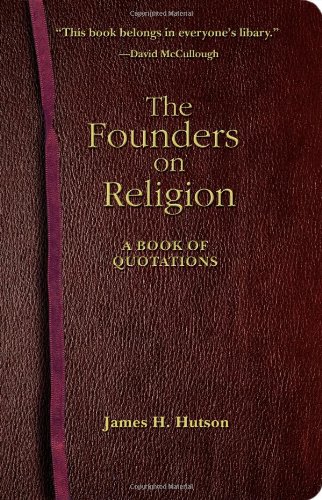

Most ebook files are in PDF format, so you can easily read them using various software such as Foxit Reader or directly on the Google Chrome browser.
Some ebook files are released by publishers in other formats such as .awz, .mobi, .epub, .fb2, etc. You may need to install specific software to read these formats on mobile/PC, such as Calibre.
Please read the tutorial at this link: https://ebookbell.com/faq
We offer FREE conversion to the popular formats you request; however, this may take some time. Therefore, right after payment, please email us, and we will try to provide the service as quickly as possible.
For some exceptional file formats or broken links (if any), please refrain from opening any disputes. Instead, email us first, and we will try to assist within a maximum of 6 hours.
EbookBell Team

4.8
34 reviewsWhat did the founders of America think about religion? Until now, there has been no reliable and impartial compendium of the founders' own remarks on religious matters that clearly answers the question. This book fills that gap. A lively collection of quotations on everything from the relationship between church and state to the status of women, it is the most comprehensive and trustworthy resource available on this timely topic.
The book calls to the witness stand all the usual suspects--George Washington, Thomas Jefferson, James Madison, Benjamin Franklin, and John Adams--as well as many lesser known but highly influential luminaries, among them Continental Congress President Elias Boudinot, Declaration of Independence signer Charles Carroll, and John Dickinson, "the Pennsylvania Farmer." It also gives voice to two founding "mothers," Abigail Adams and Martha Washington.
The founders quoted here ranged from the piously evangelical to the steadfastly unorthodox. Some were such avid students of theology that they were treated as equals by the leading ministers of their day. Others vacillated in their conviction. James Madison's religious beliefs appeared to weaken as he grew older. Thomas Jefferson, on the other hand, seemed to warm to religion late in life. This compilation lays out the founders' positions on more than seventy topics, including the afterlife, the death of loved ones, divorce, the raising of children, the reliability of biblical texts, and the nature of Islam and Judaism.
Partisans of various stripes have long invoked quotations from the founding fathers to lend credence to their own views on religion and politics. This book, by contrast, is the first of its genre to be grounded in the careful examination of original documents by a professional historian. Conveniently arranged alphabetically by topic, it provides multiple viewpoints and accurate quotations.
Readers of all religious persuasions--or of none--will find this book engrossing.